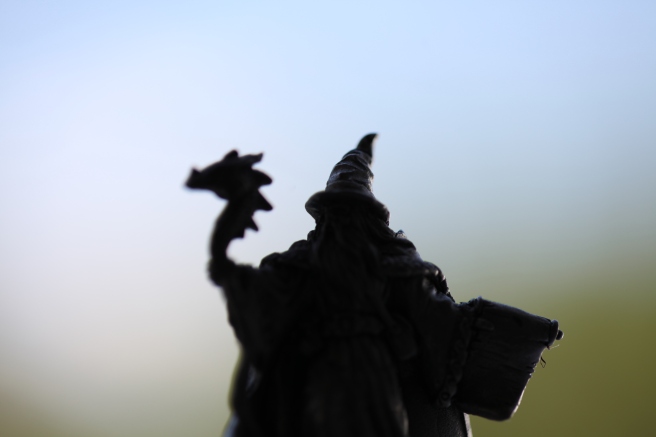
Image: Jared Tarbell / CC BY 2.0
I have just found my new favourite wizard. Here is a talk where he explains himself.
“What if we’re in a reality, and there’s a reality parallel to this one, and that one’s slightly better. In that reality, I’m more of a wizard. Well that wizard can travel through dimensions, so by summoning him here it’s very easy for him to come over and take over my life, which last November I invited him to do.”
He has studied occultism, eastern philosophy, Jungian psychology, neuro-linguistic programming, personal growth, and ritual magic. “Through this research, he uncovered the psychological processes underlying what shamans and sorcerers call ‘magic’.”
Question: is magic mainly psychological processes? Is it only psychological? Is there more going on? Can we ever know for sure – no. But is there any reason to believe there’s more going on? Apart from the mind-expanding practice of believing there’s a lot going on in the world, which I think is entirely useful.
Another point he makes: maybe it’s alright to sound a little crazy, in the modern world. In past times, singling yourself out as crazy and different could be dangerous; in the present world, if you live in a big enough city, you’ll find some people who are also a bit crazy. I’m intrigued by the idea of magicians toeing the line between sanity and madness. Maybe you need to be a little crazy to get into magic in the first place, but maybe you also need to be a little crazy to get deep enough into it for it to be really effective. (On that note about the big enough city – maybe most of the strange art (and magic) that we make comes from living in cities. Is it true that people make less art that is really “out there” out in the country?)
Some of my favourite quotes:
“Art doesn’t have to be logical and narratively structured to convey meaning and emotion; wizardry works best when you keep things light and fun, avoiding the snares of dogma and self-seriousness.”
“Like religion, art, and science, magic is a way of looking at the world. I think magic is interesting because it embraces paradox, is comfortable with confusion, and tends to be holistic and subjective rather than empirical and objective. So, in a world where there is no “default perspective,” the idea of embracing that uncertainty has significant appeal.”
It is really refreshing how he can joke about these things and also be genuinely interested in what makes them work, what’s effective and what’s not. I have little patience for people who call themselves experts, who say “this is how it’s done”, rather than simply offering suggestions. I’ve tried reading Crowley, and it’s just a great big bag o nope for that reason. I find that so many Wiccans and neo-pagans who have written books on magic are more authoritative than I think they really should be, too. Maybe I’m more inclined to trust someone who doesn’t speak with so much authority.
Reading recommendations from Person:
http://glycon.livejournal.com/13888.html
Another interesting Pecha Kucha I found, that is possibly mildly related 🙂 :
http://www.pechakucha.org/presentations/magic-words


Good find! I like this. Gives me the idea to write more about logic, there’s a certain arbitrariness to it that reminds of some ideas here. Particularly the part about having no “default perspective” and embracing uncertainty 😀
LikeLike
Nice! I think that logic is tricky, because we can never really know about or account for all the different variables that are at play in any given situation.
I’ve been reading up about chaos magic, which takes a similar approach, with an equal lack of seriousness which is kind of wonderful – http://www.principiadiscordia.com/downloads/Condensed%20Chaos.pdf
It’s a major challenge for me, to reconcile my logical brain with the idea that it’s not possible to actually know the answers to metaphysical questions with any kind of certainty, but to keep playing around with these ideas anyway. I do like the approach of not believing anything dogmatically, but allowing that any perspective might be true, and experimenting with adopting different belief systems for periods of time.
LikeLike
Cool! Thanks for the link, sounds like something I want to read.
LikeLike